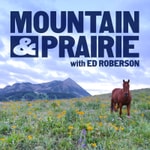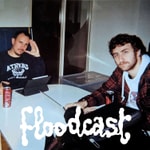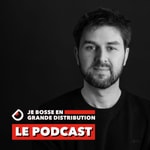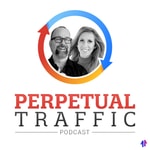Mountain & Prairie with Ed Roberson – Details, episodes & analysis
Podcast details
Technical and general information from the podcast's RSS feed.

Mountain & Prairie with Ed Roberson
Ed Roberson
Frequency: 1 episode/12d. Total Eps: 275

Recent rankings
Latest chart positions across Apple Podcasts and Spotify rankings.
Apple Podcasts
🇺🇸 USA - placesAndTravel
22/07/2025#73🇺🇸 USA - placesAndTravel
21/07/2025#77🇨🇦 Canada - placesAndTravel
20/07/2025#92🇺🇸 USA - placesAndTravel
20/07/2025#92🇨🇦 Canada - placesAndTravel
19/07/2025#49🇺🇸 USA - placesAndTravel
19/07/2025#92🇺🇸 USA - placesAndTravel
03/07/2025#100🇺🇸 USA - placesAndTravel
02/07/2025#96🇺🇸 USA - placesAndTravel
20/06/2025#100🇫🇷 France - placesAndTravel
12/06/2025#94
Spotify
No recent rankings available
Shared links between episodes and podcasts
Links found in episode descriptions and other podcasts that share them.
See all- https://www.instagram.com/p
11467 shares
- https://www.instagram.com/mtnprairie
187 shares
- https://mountainandprairie.com/podcast/
188 shares
- https://mountainandprairie.com/support/
187 shares
- https://blisterreview.com/off-the-couch
185 shares
RSS feed quality and score
Technical evaluation of the podcast's RSS feed quality and structure.
See allScore global : 53%
Publication history
Monthly episode publishing history over the past years.
Heidi Redd & Sue Bellagamba - Tales from the Dugout Ranch
mardi 27 août 2024 • Duration 01:02:08
Heidi Redd is a renowned rancher, conservationist, author, and member of the National Cowgirl Museum’s Hall of Fame. Sue Bellagamba serves as Canyonlands Regional Director at the Nature Conservancy, and for more than thirty years, she has worked to protect the lands and waters of southeastern Utah.
Heidi and TNC have been partners since 1997 when Heidi sold her family’s Utah ranch– The Dugout Ranch– to the Nature Conservancy in a historic conservation deal that protected the property from impending development. The Dugout Ranch is located at the gateway to Canyonlands National Park and sits within the boundaries of what is now Bears Ears National Monument– a fragile and arid landscape that has faced various development and environmental threats for many decades.
Heidi and Sue have worked together in many capacities over the years, with one of their most notable achievements being the creation of The Canyonlands Research Center (“CRC”), which is headquartered at the Dugout Ranch. The CRC was founded in 2010, and its mission is to “promote a sustainable future on the Colorado Plateau for people and nature through research, inspiration, and demonstration of evidence-based solutions to solve some of our most pressing ecological, social, and economic issues.”
Heidi is also the author of the excellent new book titled A Cowgirl's Conservation Journey: Stories from the Dugout Ranch. The book details her fascinating and adventurous life, with tales ranging from her youth (which included lots of rock climbing and skydiving), to her early years on the Dugout Ranch, all the way up to some recent behind-the-scenes stories from the designation of Bears Ears as a National Monument. If you’re a fan of history, adventure, ranching, conservation, and purpose-driven people, I know you’ll enjoy the book.
We covered a lot in the episode, including Heidi’s upbringing, her first visit to the Dugout Ranch, and when she knew that she would devote her life to stewarding the Dugout’s spectacular landscapes. Sue provides some excellent context around conservation in the American Southwest, and why drylands are such a critical ecosystem and focus of TNC’s efforts. We discuss how TNC initially built trust with Heidi back in the 1990s, the creation of The Canyonlands Research Center, new insights Heidi gleaned from writing her book, and much more. Be sure to visit the episode notes for links to everything we discuss, including Heidi’s book.
A huge thanks to Heidi and Sue for taking the time to chat with me and share their wisdom from so many decades of conversation work in such a special part of the country. Enjoy!
---
- The Dugout Ranch
- The Canyonlands Research Center
- A Cowgirl's Conservation Journey: Stories from the Dugout Ranch by Heidi Redd
- Full episode notes and links: https://mountainandprairie.com/heidi-sue/
---
This episode is brought to you in partnership with the Colorado chapter of The Nature Conservancy and TNC chapters throughout the Western United States. Guided by science and grounded by decades of collaborative partnerships, The Nature Conservancy has a long-standing legacy of achieving lasting results to create a world where nature and people thrive.
On the last Tuesday of every month throughout 2024, Mountain & Prairie will be delving into conversations with a wide range of The Nature Conservancy’s leaders, partners, collaborators, and stakeholders, highlighting the myriad of conservation challenges, opportunities, and solutions here in the American West and beyond.
To learn more about The Nature Conservancy’s impactful work in the West and around the world, visit www.nature.org
---
TOPICS DISCUSSED:
- 4:00 - Heidi’s upbringing
- 7:15 - Heidi describes the Dugout Ranch
- 13:30 - When Heidi knew she wanted to dedicate her life to the Dugout Ranch and surrounding area
- 16:00 - When Heidi took the reins of the Dugout
- 20:45 - When Heidi became interested in working with TNC
- 24:30 - Why Heidi trusted TNC
- 26:45 - Sue explains why TNC wanted to get involved with the Dugout Ranch and what their plan was once they purchased it
- 30:15 - Sue explains the mission and purpose of the Canyonlands Research Center
- 32:15 - When climate change got on Heidi’s radar
- 37:45 - How Heidi discusses climate change, given our political climate
- 41:30 - Sue explains why drylands are so important
- 44:00 - Heidi and Sue explain the impact of the political battle surrounding Bears Ears on their work
- 50:30 - Heidi discusses whether or not writing her book helped her come to new conclusions
- 54:00 - Heidi’s hopes for her family
- 55:30 - Heidi and Sue’s book recommendations
- 59:45 - Parting words of wisdom
---
ABOUT MOUNTAIN & PRAIRIE:
Curt Meine - Aldo Leopold's Life, Work, and Enduring Legacy
vendredi 23 août 2024 • Duration 01:07:30
Curt Meine is a Senior Fellow at the Aldo Leopold Foundation and one of the world’s foremost experts on the life, work, and legacy of conservation icon Aldo Leopold. Curt is the author of the biography “Aldo Leopold: His Life and Work,” and he also works as a conservation biologist, a professor, a senior fellow with the Center for Humans and Nature, and much more.
-
Since the very beginning of Mountain & Prairie, Aldo Leopold has been one of the most referenced, admired, and influential conservation thinkers whose name and ideas have been referenced over and over on the podcast. Whether I’m talking to people in agriculture or entertainment, writing or athletics, history or politics, there always seems to be a thread of thinking that connects many Mountain and Prairie guests to the Land Ethic of Aldo Leopold.
-
So, I was long overdue in devoting an episode exclusively to Leopold, and I was thrilled to have the opportunity to chat with Curt, one of our most admired and trusted Leopold scholars. Whether you are brand new to the work of Leopold or you’ve read A Sand County Almanac a hundred times, I think you’ll learn a lot from this episode. Curt has a real gift for discussing the details of Leopold’s life in an amazingly engaging way, while also helping us to understand Leopold’s legacy in the context of the broad history of North American conservation.
-
We start the conversation with an overview of Leopold’s early years and upbringing, and his eventual enrollment in the Yale School of Forestry. We discuss Leopold’s formative years in the American Southwest, how his outside-the-box ideas about wildlife sometimes clashed with the status quo, and his eventual move back to Wisconsin. We talk a lot about Leopold’s personality and how it compares to other conservation icons, how his work was received both in his lifetime and after his death, his surprising challenges finding a publisher for A Sand County Almanac, and that book’s long-lasting influence. We also discuss criticisms of Leopold’s work, some of his ideas that may not hold up as well today as they did in their time, and Leopold’s abundant curiosity and willingness to change his mind. We also discuss books, the very important work of the Aldo Leopold Foundation, and much more.
-
Be sure to check out the episode notes for a full list of topics and links to everything. And also, I want to thank my friend, the great conservationist and all-around amazing human Doug Duren for so generously introducing me to the team at The Aldo Leopold Foundation and being such a steadfast champion of Leoplod’s legacy. Enjoy!
---
- Curt Meine
- The Aldo Leopold Foundation
- "Aldo Leopold: His Life and Work"
- Complete episode notes and links: https://mountainandprairie.com/curt-meine/
- SIGN UP: Ed's Book Recommendations
---
TOPICS DISCUSSED:
3:45 - Aldo Leopold’s upbringing
11:15 - Leopold’s work in the Southwest
16:30 - How Leopold’s persona may or may not have helped (or harmed) him in his efforts to implement conservation
20:!5 - What brought Leopold back to his home state of Wisconsin
22:45 - How Leopold’s novel ideas for wildlife management were received by the Forest Service establishment
26:45 - How Leopold’s ideas influenced forestry and conservation thinking outside of the Forest Service, and whether or not this influenced FDR’s conservation work
32:45 - Whether or not Leopold ever lost his cool in his fight to change land stewardship thinking in the US
37:00 - Discussing A Sand County Almanac, and how long it took to be viewed as the influential work it is considered by many to be today
43:15 - Leopold’s passion for, and balance between, science and art
45:45 - Which of Leopold’s stances or ideas do not hold up today
50:45 - Leopold’s willingness to accept change and criticism, and its importance today
53:15 - An overview of the Aldo Leopold Foundation
57:45 - Curt’s book recommendations
1:01:30 - Curt’s parting words of wisdom
---
ABOUT MOUNTAIN & PRAIRIE:
Dan Stellar - Bolstering Biodiversity in Arizona and Beyond
mardi 28 mai 2024 • Duration 01:08:59
Dan Stellar is the State Director for the Arizona Chapter of The Nature Conservancy, where he leads the organization’s efforts across a wide range of cutting-edge initiatives, including forest health, water conservation, resilient cities, healthy grasslands, and more. Arizona is one of the nation’s largest and most biodiverse states, which creates a host of extremely unique conservation challenges and opportunities– both in its arid, wide-open landscapes and densely populated urban centers. As you’ll hear, Dan and his team are implementing conservation solutions that not only benefit people and nature specifically in Arizona, but they are also creating actionable conservation frameworks that can be applied all over the American West.
-
Dan was born and raised on the East Coast, and he has spent his career in the non-profit sector, applying his talents to important issues both domestically and abroad. He began his tenure at TNC Arizona in 2016, when he assumed the role of Deputy State Director. He quickly fell in love with Arizona and TNC’s critical work in the state, and, in 2020, he assumed the role of State Director. Dan is also a committed endurance athlete, and he’s run a mind-blowing number of marathons and half-marathons. And on top of all of that, he’s a dedicated father, husband, and family man.
-
Dan and I share so many common interests in conservation, endurance sports, and family, so I was super excited to have the opportunity to learn more about the specifics of his work and his fascinating personal and professional journey. We started the conversation with an overview of what makes Arizona such a unique place from a conservation perspective, then we dug into the details of TNC’s work in forest heath, rivers, aquifers, outdoor recreation, and resilient cities. We talked about some of the lessons he learned from traveling and working internationally, why he chooses to push himself so hard athletically, and how he goes about building such strong relationships with stakeholders, partner organizations, and his TNC team members. Dan is also a voracious reader, so we obviously chatted about books, and he wrapped up the conversation with very wise parting words.
-
I really felt like I’d met a real kindred spirit in Dan, and I greatly appreciate everything that he and his team are doing to make Arizona– and the West– a better place. I hope you enjoy this conversation as much as I did.
---
- Dan Stellar
- TNC Arizona's 2023 Annual Report
- Spring 2024 Field Notes Magazine
- Full episode notes and links: https://mountainandprairie.com/dan-stellar/
---
This episode is brought to you in partnership with the Colorado chapter of The Nature Conservancy and TNC chapters throughout the Western United States. Guided by science and grounded by decades of collaborative partnerships, The Nature Conservancy has a long-standing legacy of achieving lasting results to create a world where nature and people thrive.
On the last Tuesday of every month throughout 2024, Mountain & Prairie will be delving into conversations with a wide range of The Nature Conservancy’s leaders, partners, collaborators, and stakeholders, highlighting the myriad of conservation challenges, opportunities, and solutions here in the American West and beyond.
To learn more about The Nature Conservancy’s impactful work in the West and around the world, visit www.nature.org
---
TOPICS DISCUSSED:
3:30 - Setting the scene for conservation work in Arizona
8:45 - Forest health work in Arizona
15:00 - Aligning profit motives with forest health goals
22:00 - Whether or not there are down-sides to forest thinning
25:15 - Discussing the Verde River
31:15 - Discussing the Big Chino Aquifer
35:00 - Collaborating with the Trust for Public Land to build a new park in Arizona
39:45 - TNC’s work with cities in Arizona
46:00 - Dan’s passion for running, and his attraction to doing hard things
50:15 - How Dan fits running into his schedule
52:00 - How Dan became interested in conservation
57:30 - Dan’s lessons from traveling
1:00:00 - Dan’s book recommendations
1:04:30 - Dan’s parting words of wisdom
---
ABOUT MOUNTAIN & PRAIRIE:
Matt Pierson - Finding New Solutions for Food Insecurity
mercredi 3 novembre 2021 • Duration 01:05:58
Matt Pierson is a fifth-generation Montana rancher who owns and operates Highland Livestock Company alongside his wife and two sons. He’s also the founder and President of the Producer Partnership, a newly formed non-profit organization that brings together farmers and ranchers with the goal of ending hunger in Montana. Since its start in spring of 2020, the Producer Partnership has given away tens of thousands of pounds of beef to Montana food banks and is creating replicable, scalable solutions for fighting hunger throughout the West and beyond.
-
The idea for the Producer Partnership was born in early 2020, just as the COVID-19 pandemic was roiling communities and economies across the globe. With many Montana residents out of work and food banks struggling to keep up with the unprecedented demand, Matt decided to donate the meat from a cow he was planning to cull to his local food bank. He quickly recognized the direct positive impact that his donation had on the community, so he reached out to friends to drum up more donations. Within a month, he had directed 10,000 pounds of ground beef to area food banks. He kept going, and by the end of 2020, that number had risen to more than 53,000 pounds of beef. Through creativity, hard work, and an unyielding commitment to G.S.D. (“Getting Stuff Done”), Matt and his team at the Producer Partnership have created a new model for solving food insecurity in Montana.
-
Matt and I connected virtually for a wide-ranging conversation that will be inspiring and educational for anyone interested in impactful, purpose-driven work. We started out discussing his family’s long history in Montana, and then we moved into details of how the Producer Partnership began. We talked about the challenges around processing meat both during the early stages of the pandemic and now, as well as the cutting-edge meat processing facility that the Producer Partnership is currently building. We discussed the scalability and replicability of the Producer Partnership model, and how he expects the organization to evolve in the coming years. Matt discussed the importance of community; why he chooses to volunteer for causes ranging from youth soccer to Trout Unlimited; the future of agriculture; how he defines success in his ranching operation; and much more.
-
This is an inspiring episode, and I know you’ll enjoy it. Go to www.producerpartnership.com to learn more about Matt and his work-- and donate or buy some gear if you are so inclined. Enjoy!
---
- Producer Partnership
- DONATE to the Producer Partnership
- Producer Partnership Merch
- Full episode Notes with Links: https://mountainandprairie.com/matt-pierson/
---
TOPICS DISCUSSED:
- 3:50 - Matt's family history in Montana
- 4:50 - The beginnings of the Producer Partnership
- 8:20 - Logistics during the early days of the Producer Partnership
- 10:20 - Media begins to pick up the Producer Partnership story
- 12:00 - "GSD" - Getting Stuff Done
- 14:00 - First year success
- 15:50 - Managing the Producer Partnership and the family ranch
- 18:20 - Executing the idea of building a new processing facility
- 22:00 - Adding value to all steps of the process
- 26:20 - Realities of building a first-of-its-kind federally approved processing facility
- 30:00 - Role for the Producer Partnership post-COVID
- 32:00 - Potential for replicability
- 39:00 - The importance of community
- 43:00 - How Matt judges success in ranching
- 47:45 - How Matt thinks agriculture will evolve in the coming years
- 52:00 - The unexpected surprise of creating a non-profit
- 56:00 - Importance of being a problem solver, thinking independently
- 57:30 - Favorite books
- 1:00:30 - Words of wisdom
- 1:02:30 - Overcoming the labor challenges
---
This episode is brought to you by The Arthur M. Blank Family Foundation and its Montana-based AMB West Philanthropies, both of which embody the values-based approach to philanthropy and business of their Chairman Arthur M. Blank.
---
ABOUT MOUNTAIN & PRAIRIE:
- Mountain & Prairie - All Episodes
- Mountain & Prairie Shop
- Mountain & Prairie on Instagram
- Upcoming Events
- About Ed Roberson
- Support Mountain & Prairie
- Leave a Review on Apple Podcasts
Ryan Busse - Standing His Ground
vendredi 15 octobre 2021 • Duration 01:08:49
Ryan Busse is a Montana-based conservationist, public lands advocate, and former top-performing firearms executive. He's also the author of the new book "Gunfight: My Battle Against the Industry that Radicalized America," which has received advanced praise from everyone from Publishers Weekly to Senator Jon Tester. Ryan is a life-long hunter and angler, as well as a proud gun owner, and he brings a unique, nuanced perspective to our country's ongoing debate about guns and the Second Amendment. "Gunfight" is in no way an "anti-gun" book-- rather, it's an insider's examination of how and why the firearms industry transformed from a sportsman-centered business into a politically driven machine that uses decisiveness and fear to grow profits exponentially. From a broader perspective, "Gunfight" helped me to understand how we ended up at this bizarre moment in history-- a moment defined by anger, misinformation, tribalism, and binary thinking.
-
Ryan was born in western Kansas and grew up on his family's ranch, where most of his childhood was centered around hunting, fishing, and a close connection to the land. After college, Ryan focused his energy on building a career in the sporting goods industry, first working for an optics company and then moving into the firearms business. Ryan found his calling as a gun salesman, and, over the course of his career, he helped transform a small firearms company named Kimber into an internationally recognized brand. But as you'll hear in our conversation, Ryan's advocacy for public lands and conservation created a rift between him and the firearms industry-- a rift that eventually exposed the industry's authoritarian power structure that does not tolerate independent thinking or deviations from industry dogma. Ryan refused to be bullied or told what to think, and he eventually quit his lucrative job selling guns and decided to tell his story and that of the industry's transformation. The result is his book "Gunfight," which we are discussing here today.
-
I was lucky enough to receive an advanced copy of "Gunfight," and I was thrilled to have a chance to discuss it with Ryan. We started out talking about his upbringing on his family's Kansas ranch and how his father introduced him to the writings of conservation luminaries, including Aldo Leopold and Theodore Roosevelt. We then discussed his life-long love of hunting and guns, and why he chose to pursue a career in the gun industry. We discussed the exact moment when he realized that his personal devotion to public lands was at odds with his industry's stance and the unraveling that occurred over the course of the following years. We talk about why gun sales soar during Democratic administrations, the industry's shift from hunting rifles to assault rifles, some very disturbing stories from industry events, Ryan's public land advocacy, the positive influence of his wife, and much more.
-
I thoroughly enjoyed this conversation, and I learned a lot. I really appreciate Ryan taking the time to chat, and I hope you find it enlightening. Be sure to check out the episode notes for a complete list of topics and links to everything we discussed. Enjoy!
---
- Ryan Busse
- "Gunfight: My Battle Against the Industry that Radicalized America" - Bookshop & Amazon
- Episode notes and links: https://mountainandprairie.com/ryan-busse/
---
TOPICS DISCUSSED:
- 5:00 – Ryan’s background
- 8:30 – Ryan discusses his father and his impact on Ryan’s conservation ethic
- 12:45 – Ryan talks about what he was like in high school
- 15:00 – Ryan discusses when he felt like his role in the firearms/optics industry was a good career path for him
- 17:00 – Ryan tells the story of the experience that made him second guess his career
- 22:00 – Following his falling out with the leaders in firearms industry, Ryan explained why he stayed in the industry
- 26:00 – Ryan describes an uncomfortable moment when he went to an NRA conference
- 32:30 – Ryan describes a moment where a journalist showed up to an interview armed with an AR-15
- 37:30 – Ryan discusses the phenomenon that gun ownership/purchases sky rocket during Democratic presidential administrations
- 41:30 – Ryan explores why gun enthusiasts or industry personnel may disagree with him
- 45:30 – Ryan talks about his wife
- 48:00 – Ryan talks about Backcountry Hunters and Anglers and his role with them
- 1:02:30 – Ryan’s book recommendations
- 1:05:00 – Ryan’s parting words of wisdom
---
ABOUT MOUNTAIN & PRAIRIE:
Lesli Allison & Tuda Libby Crews - Durable Conservation in the West... and Beyond
mardi 21 septembre 2021 • Duration 01:04:15
Lesli Allison and Tuda Libby Crews join me to discuss the critical role of private and working lands in achieving durable conservation outcomes in the United States. Lesli is a founding member and the Executive Director of the Western Landowners Alliance, a nonprofit organization that advances policies and practices that sustain working lands, connected landscapes, and native species. Tuda is a rancher and owner of Ute Creek Cattle Company, a conservation-focused ranching operation in northeastern New Mexico that has been in Tuda’s family for more than 200 years. Whether discussing on-the-ground stewardship practices or the intricacies of federal conservation policy, Lesli and Tuda are uniquely qualified to offer informed and thoughtful perspectives on all aspects of private land in the West.
-
While ranchers, farmers, and conservation stakeholders have long understood the critical importance of private land stewardship and conservation, the Biden administration’s 30x30 conservation goal has brought the topic to the forefront of American politics and mainstream media. 30x30 has prompted challenging conversations about what it means to conserve land, and it has sparked healthy debates about the government’s role in private land stewardship. 30x30 is a bold initiative and its implications for private landowners, particularly agricultural producers, are enormously complex-- we’ll never find sufficient answers in pithy Tweets or surface-level news stories. So, I was excited to have Lesli and Tuda join me for an hour-long conversation about 30x30 and private lands’ role in large-scale conservation.
-
Lesli, Tuda, and I connected via Zoom and enjoyed a wide-ranging conversation, covering everything from Tuda’s family history in New Mexico to some of the intricacies of the 30x30 initiative. We started out discussing the vital role private lands play in conservation and environmental health here in the United States. Tuda talks about her family’s process of restoring her family’s ranch in New Mexico and the many environmental benefits that they have experienced. We obviously dig into 30x30, discussing its pros and cons and its opportunities and challenges. We talk about the importance of garnering local support for all land-related initiatives, and they each discuss their thoughts on the odds of success for an initiative as ambitious as 30x30. And as usual, they each offer up some excellent book recommendations that I think you’ll enjoy.
-
Please check out the episode notes for a full list of topics we discuss and links to all of the information we reference. Enjoy!
---
This episode is brought to you in partnership with Colorado State University’s Salazar Center for North American Conservation. https://salazarcenter.colostate.edu/
---
- Western Landowners Alliance
- Ute Creek Cattle Company
- 2021 International Symposium on Conservation Impact
- Full episode notes with links: https://mountainandprairie.com/lesli-tuda/
---
TOPICS DISCUSSED:
- 4:40 – Lesli’s introduction
- 6:25 – Tuda’s introduction
- 9:55 – Lesli discusses private lands’ role in conservation
- 13:25 – Tuda describes her ranch and her family’s conservation work there
- 19:40 – Lesli talks about performing private land conservation work at scale
- 24:40 – Tuda describes her process of arriving at creative land stewardship solutions
- 28:55 – Lesli and Tuda discuss 30 by 30
- 39:40 – Lesli discusses means of protecting agricultural property from subdivision
- 44:10 – Nodding towards public land conservation efforts, Leslie and Tuda discuss was to garner public support for private land stewardship efforts
- 51:40 – Lesli and Tuda talk about how they see our odds for success in these efforts
- 55:40 – Book recommendations
- 59:40 – Lesli mentions what WLA is doing from a media perspective
---
ABOUT MOUNTAIN & PRAIRIE:
Hampton Sides - Tales from a Most Excellent Adventure
vendredi 17 septembre 2021 • Duration 55:18
Hampton Sides is a historian and New York Times bestselling author who is best known for his engaging works of narrative nonfiction, including the books “Blood and Thunder,” “Ghost Soldiers,” “On Desperate Ground,” and more. His latest project is an ebook and audiobook titled “THE EXOTIC: Intrigue and Cultural Ruin in the Age of Imperialism,” which details the life and unbelievable adventures of a man named Mai, who was the first Polynesian to set foot on British soil. “The Exotic” is much shorter than Hampton’s previous books but much longer than a magazine article, giving the reader a chance to enjoy Hampton’s one-of-a-kind historical storytelling in only a few hours of reading.
-
Longtime listeners of Mountain & Prairie will remember Hampton’s two previous appearances on the podcast. The first was an in-depth discussion of his book “Blood and Thunder” and the history of the American West, which was recorded live and on stage at the Aspen Institute. In his second appearance, we focused on his writing and research process, and his career progression from journalist at Outside Magazine to becoming a best-selling historian. Today’s conversation takes us far beyond the American West, everywhere from remote islands in the South Pacific to King George’s court in England. So if you’re a fan of adventure, history, and profiles of Indigenous people who have often been overlooked by mainstream history, you’ll love this book.
-
Hampton and I connected virtually and had a fun conversation about the book and his process for writing it. We talked a lot about Mai’s unbelievable journey from Polynesia to England and back again, as well as the opportunities and challenges of exploring history from an Indigenous perspective. We talked about Hampton’s process for researching the book and how COVID has forced him to adjust his usual approach. Hampton was actually in the South Pacific researching the book in March 2020 when the pandemic hit, which, as you’ll hear, added an extra layer of adventure to an already adventurous trip. And as usual, Hampton offers up some great book recommendations that I think you’ll enjoy.
-
“The Exotic” is available exclusively on Scribd, which is an online service that gives you instant access to ebooks, audiobooks, articles, podcasts, and more. I’ve thoroughly enjoyed Scribd over the past few weeks, and I’d encourage you to give it a shot. You can access it for free for 30 days by following the link in the episode notes or on this episode’s webpage. And I’m not being paid for this endorsement-- I’m just a fan of what Scribd is doing and the unique forms of writing that they are bringing to the world.
-
I hope you enjoy this episode, and I hope you’ll invest a few hours reading “The Exotic.” And if you haven’t already, go back and listen to my past episodes with Hampton-- they are fun and educational conversations. Thanks so much.
---
- “The Exotic” by Hampton Sides
- 30-day free trial of Scribd
- Hampton’s first and second M&P episodes
- Episode notes with links: https://mountainandprairie.com/hampton-sides-3/
---
TOPICS DISCUSSED:
- 4:00 – How Mai got Hampton’s attention
- 11:45 – Hampton discusses who Mai was
- 22:00 – Hampton walks us through what Mai did while he was in England
- 31:30 – Hampton explains what happens when Mai returns home
- 36:30 – Hampton describes doing his research while COVID-19 took off and discusses how the pandemic affected his writing
- 43:30 – Hampton talks about Captain Cook
- 51:15 – Hampton’s book recommendations
---
ABOUT MOUNTAIN & PRAIRIE:
Luke Smithwick - A Life in High Places
vendredi 10 septembre 2021 • Duration 01:00:07
Luke Smithwick is a professional alpinist, ski mountaineer, and mountain guide best known for his cutting-edge climbs and descents in the world’s wildest mountain ranges. Luke is based in Victor, Idaho, in the shadow of the legendary Teton Range, but he spends large portions of each year deep in the Himalayas, guiding clients on remote peaks or pursuing personal climbing and skiing objectives on 7-8,000-meter peaks. He is currently hard at work on a multi-year skiing project called The Himalaya 500, which is his personal quest to ski 500 aesthetic ski lines throughout the greater Himalayan Range.
-
Luke was born and raised in North Carolina, and he moved to Colorado for college, where he attended CU Boulder and studied environmental biology and cultural anthropology. When not in class, Luke immersed himself in outdoor sports and soon began working as a guide-- first a river guide on Colorado’s Upper Arkansas River and then a climbing guide. After graduation, Luke completely committed himself to the mountains, and his adventures have since taken him everywhere from the Alaska Range to his current work in the Himalayas. His company, Himalaya Alpine Guides, focuses on trips to some of the lesser-known (and less crowded) peaks in the Himalayan Range, where his clients can enjoy completely unique climbing and cultural experiences that cannot be found on more mainstream, well-known mountains.
-
Luke and I went to high school together back in the mid-1990s, and I was a couple of grades ahead of him. After graduation, we lost touch but have reconnected during the past few years thanks to shared interests and common friends. I was so happy that he joined me on the podcast, because I had lots of questions about how a guy from small-town North Carolina has become one of the world's most accomplished Himalayan skiers. We had a wonderful conversation, discussing everything from his career trajectory to this season’s climbing objectives. We talked about how he picks ski lines, how climate change is affecting the Himalayas, the unique nature of his guiding company, how he trains, why he has made his home in the American West, and his deep respect for the people, history, and cultures of the Himalayas.
-
I loved catching up with my old friend Luke. I was blown away by all he has accomplished in the past 20 years, and I have the utmost respect for his understated, humble approach to life, learning, and adventure. Be sure to check the episode notes for links to everything we discussed. Enjoy!
---
- Luke Smithwick
- Himalaya Alpine Guides
- The Himalaya 500
- Episode Notes with Links: https://mountainandprairie.com/luke-smithwick/
---
TOPICS DISCUSSED:
- 4:00 – Luke walks us through his trajectory post high school and how he became a professional outdoor guide
- 7:30 – Luke talks about his work and his guide company in the Himalayas
- 9:45 – Luke explains why he focuses on a deep understanding of mountain ranges instead of just the principle summits of a range
- 13:15 – Luke discusses how he finds his clientele
- 15:30 – Luke explains the importance of local relationships for his business
- 17:45 – Luke discusses his project, the Himalaya 500
- 21:15 – Luke explains how he picks his ski lines
- 23:00 – Luke talks about the information age and its impact on the availability of “secret spots”
- 25:00 – Luke talks about the people he has met in his travels around the Himalaya
- 27:45 – Luke talks about how current action in Afghanistan may affect his work
- 28:45 – Luke discusses the impacts of climate change that he sees in his work
- 32:00 – Luke explains how he trains for his work and play in the mountains in order to make it a sustainable lifestyle
- 36:00 – Luke talks about his current 8,000 meter peak goal
- 39:00 – Luke discusses how he balances humility and the need for self-promotion in his field
- 44:45 – Luke talks about training for alpine trips in his forties
- 48:00 – Luke talks about his family
- 49:15 – Luke discusses his hometown and the significance of Boy Scouts in his upbringing
- 51:30 – Luke’s book recommendations
- 53:30 – Luke’s film recommendations
- 54:30 – Luke talks about the most powerful experience in his life
- 56:45 – Luke’s parting words of wisdom
---
ABOUT MOUNTAIN & PRAIRIE:
Shane Doyle - Reverence for the Past, Hope for the Future
mercredi 1 septembre 2021 • Duration 01:06:26
Shane Doyle is a Montana-based scholar, teacher, and community advocate whose work focuses on the history and heritage of Native American tribes of the Northern Great Plains. Shane is an enrolled member of the Apsáalooke Nation (also known as the Crow Tribe), and he holds a doctorate in Curriculum and Instruction from Montana State University. His unique personal and professional experiences, combined with his deep curiosity and seemingly endless energy, have made Shane a well-known leader in many fields, including education, land use advocacy, and the arts.
-
Shane grew up in Crow Agency, Montana, and he did not have an interest in history until college, when a road trip with a professor opened his eyes to Montana’s rich Native American past. From that moment onward, Shane’s curiosity has continued to grow, and he has built his career around making Native American history a cultural mainstay in everything from Montana’s educational system to governmental land management decisions. Whether designing educational curriculums, making films, or singing Northern Plains tribal music, Shane is always focused on serving his community.
-
Whether you’re a long-time listener or this is your first episode, I know you’ll enjoy getting to know Shane. We started out discussing his youth on the Crow reservation, and he talks about that fateful road trip when he fell in love with history. We talk about his family and the important life lessons that he learned from his grandmother. We discuss the history of the Apsáalooke, and the importance of the Crazy Mountains from a cultural and historical perspective. We also discuss his consulting business Native Nexus, some of his film projects, and his plans for the future. And Shane obviously has plenty of excellent book recommendations, so be sure to check out the episode notes for links to all of those.
-
As you’ll hear in this conversation, Shane is doing so much excellent work and has many more projects in the pipeline. I’ll look forward to a part 2 with Shane in the future so we can hear updates on everything that he’s working on. Hope you enjoy!
---
- Native Nexus
- Shane's film: Awaxaawippíia: The Crow Nation’s Sacred Ties
- Full episode note and links: https://mountainandprairie.com/shane-doyle/
---
TOPICS DISCUSSED:
- 3:15 – Shane’s childhood and how he pursued Indigenous history in his youth
- 7:45 – Shane describes how he engaged in studying the Indigenous history of Montana
- 10:30 – Shane discusses Asaalooke Nation history
- 14:30 – Shane discusses his thoughts regarding a history of broken treaties
- 18:15 – Shane talks about the service element of his work
- 21:00 – Shane discusses the significance of the Crazy Mountain Range, including his own experience fasting in that mountain range
- 27:15 – Shane explains the regularity of his meditation ceremonies
- 30:15 – Shane mentions some resources for people interested in Northern Plains Indigenous culture
- 34:00 – Shane discusses the book he is writing, Messages from Medicine Wheel Country
- 38:00 – Shane talks about his film regarding the Crazy Mountains
- 41:45 – Shane explains how folks can get involved in the protection of the Crazy Mountains
- 43:30 – Shane discusses his business, Native Nexus
- 47:15 – Shane talks about where he thinks his career is going next
- 51:45 – Shane’s book recommendations
- 55:45 – Shane’s film recommendations, as well as some films he feels less enthusiastic about
- 1:01:30 – Shane’s parting words of wisdom
---
This episode is brought to you by The Arthur M. Blank Family Foundation and its Montana-based AMB West Philanthropies, both of which embody the values-based approach to philanthropy and business of their Chairman Arthur M. Blank.
---
ABOUT MOUNTAIN & PRAIRIE:
Antonia Malchik - Exploring Culture & Complexity
jeudi 19 août 2021 • Duration 01:25:56
Antonia Malchik is a Montana-based writer and essayist, and she’s also the author of the book “A Walking Life: Reclaiming Our Health and Freedom One Step at a Time.” She has written for publications including The Atlantic and High Country News, she also writes a regular Substack newsletter titled “On the Commons,” which I highly recommend. Antonia thinks deeply about a wide range of topics, including community, conservation, the environment, private property, the West, books, and more. She has a true talent for writing about complex subjects in an engaging, in-depth manner that both educates and challenges the reader.
-
Antonia grew up in northwest Montana-- her mother was a multigenerational Montanan and her father was a first-generation immigrant from the former Soviet Union. Her family heritage combined with her innate curiosity gave Antonia a unique perspective on the world that informs all of her work. She has lived in Moscow, Vienna, Australia, and other far-flung regions, but she has always been drawn back to the landscapes of her home state of Montana, where she currently lives with her husband and two children.
-
I’ve been a long-time fan of Antonia’s work, so it was a pleasure to finally have her join me on the podcast. Just as her work covers a broad range of topics, so does this conversation-- we discuss everything from Russian history to her Montana ancestors to her long-standing commitment to the craft of writing. We talk about why she has chosen to not participate in social media, and how she manages to consume online news and media without becoming overwhelmed. We talk a lot about her writing process, her thoughts on publishing her work, and her approach to exploring and writing about potentially controversial ideas. We obviously talk about her book “A Walking Life,” as well as how the act of walking can contribute to strong communities, mental health, and physical well-being. And finally, Antonia is known for her excellent book recommendations, and she offers up some great ones-- be sure to check the episode notes for links to all the books and authors she mentions.
-
I thoroughly enjoyed this conversation and can’t thank Antonia enough for all of her hard work. Hope you enjoy.
---
- Antonia Malchik
- On The Commons
- "A Walking Life" by Antonia Malchik
- Full episode notes with links: https://mountainandprairie.com/antonia-malchik/
---
- Freeflow Institute - Special M&P Offer: https://freeflowinstitute.com
- Bill deBuys episode
---
- 5:00 – Antonia explains why she was left on the streets of Moscow and told not to get lost.
- 8:45 – Antonia reflects on moving to a completely different culture during a time when international relations were tense.
- 14:15 – Antonia recommends resources for understanding Russian history.
- 18:15 – Antonia reflects on the Montana side of her family and on the idea of pioneering.
- 23:00 – Antonia explains how and why she chooses to write.
- 27:45 – Antonia explores how she puts potentially controversial ideas out into the digital commons as well as explains when she decides to engage with people who disagree with her and comment on her writing.
- 31:30 – Despite anxiety regarding putting her work out for public viewership, Antonia reflects on why she still writes.
- 35:30 – Antonia and Ed discuss creating for the sake of continuing to create and the merits of not waiting for permission to create.
- 43:15 – Antonia explains, as a curious person, how she controls the constant influx of information that can occur through social and informational media.
- 49:00 – Antonia discusses her book, A Walking Life.
- 55:15 – Antonia talks about walking as it relates to mental health.
- 1:07:45 – Antonia’s favorite books about the West.
- 1:15:30 – Antonia’s parting words of wisdom.
---
ABOUT MOUNTAIN & PRAIRIE:









